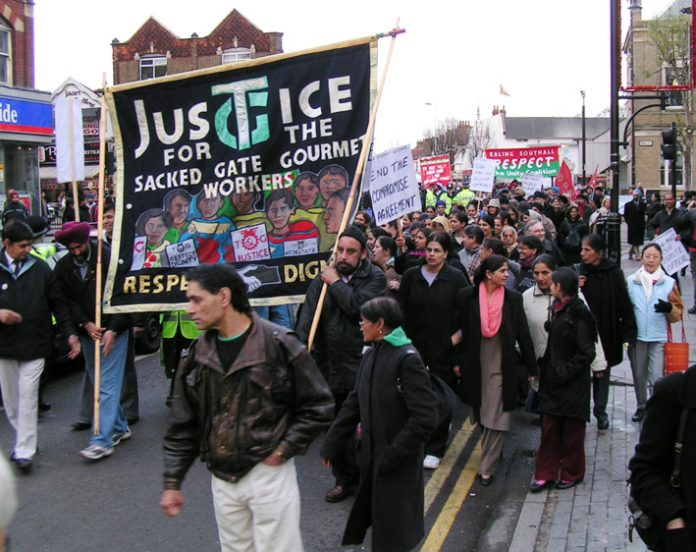President Mahmud Abbas on Friday accepted Italy’s offer to host Palestinian-Israeli peace talks, urged international commitment to the UN-adopted ‘roadmap’ peace plan, the Palestine Media Centre (PMC) reported yesterday.
He also reiterated his pledge to hold secure and transparent legislative elections on January 25, the PMC added.
Abbas’ remarks came during a three-day official visit to Italy and the Vatican.
The Palestinian leader was scheduled to meet with Pope Benedict XVI on Saturday, his first official meeting with the new pontiff.
In Rome on Friday he met with Italian President Carlo Azeglio Ciampi, Prime Minister Silvio Berlusconi, Foreign Minister Gianfranco Fini, Senate Speaker Marcello Pera and the Parliament Speaker Pier Ferdinando Casini.
He was accompanied by Deputy Prime Minister and Minister of Information, Nabil Sha’th, Minister of Tourism, Ziad al-Bandak, presidency spokesman, Nabil Abu Rdeina, Ministry of Foreign Affairs Deputy, Abdullah Abdullah and Palestine General Delegate to Italy, Nimer Hammad.
‘Abbas thanked Italy for its contribution to the Middle East peace process and its participation in EU teams monitoring the newly opened Gaza-Egypt border crossing at Rafah.
‘Ciampi affirmed his country’s unwavering stand by the Palestinians to help them establish an independent viable state, living side by side with Israel, asserting that the peace process could only continue as long as both parties conform to the principles of the “roadmap”,’ Palestinian official news agency WAFA reported.
In a joint press conference with Abbas, Ciampi said that to achieve peace and independence for his people, the Palestinian leader must ‘maintain public order, fight subversive and terrorist movements and make them lose strength.’
Abbas reiterated his pledge to hold the legislative elections on January 25 and vowed to end violence.
He promised ‘security and transparency’ in the upcoming parliamentary polls.
Abbas told reporters: ‘The issue of security, of public order and of the end of violence represents a vital interest for our people.’
He added: ‘The monopoly of force must belong to the Palestinian Authority alone.’
Later, during his one-hour meeting with Berlusconi, he said: ‘The democratic course we have undertaken, and there can be no going back.’
Berlusconi reiterated an offer to host Palestinian-Israeli talks in the Sicilian town of Erice, and said Italy was ready to mediate if requested by both sides.
‘Italy is prepared to offer whatever is necessary and useful for a positive outcome to the peace process,’ the Italian prime minister said, adding that he believed both leaders were ‘the right people’ to bring the peace process to fruition.
Abbas accepted the offer, saying the PNA was ready to start peace talks at anytime deemed appropriate by the Israeli side.
‘Political negotiation remains the only path towards peace,’ Abbas said and urged the international community, the European Union and the United States in particular, to increase their commitment to the ‘roadmap’ to peace, drawn up by them, Russia and the United Nations.
He was asked by reporters about political developments in Israel, including the recent establishment of the Kadima Party by the Israeli Prime Minister Ariel Sharon.
Confirming that the Palestinian National Authority (PNA) will negotiate with whoever wins the Israeli elections in March, Abbas however welcomed the ‘radical change’ wrought on Israel’s political landscape by Sharon’s decision to set up a new party, saying it could bring peace to the Middle East if he is re-elected.
‘There has been a radical change on the political map of Israel.
‘We now have a really new situation,’ Abbas told a joint news conference after talks with Prime Minister Berlusconi.
‘I think that the Israeli people could opt for the choice of peace and when the will of the people is the same as the will of the elected leader, much can be achieved,’ the Palestinian leader said.
Abbas cautioned that the situation in Israel from the Palestinian point of view was nonetheless still ‘very difficult to decipher’ because of the changes within the Likud party, where there were many ‘new and unknown’ faces.
Ahead of his leaving to Italy, Abbas said at his headquarters in the West Bank town of Ramallah: ‘The tranformations of the political parties in Israel represents a near political and social coup d’etat.’
But, he added: ‘We must wait to see what other changes will take place in Israel.
‘We are interested in knowing who is going to represent the Israeli people and who is going to negotiate with us.’
President Abbas re-iterated in Barcelona on Monday that the Palestinians are determined to build an independent state on all land occupied by Israel in 1967, comprising Gaza Strip and the West Bank with Jerusalem as its capital.
In Rome on Friday, Abbas said that Jerusalem must be a city open to all religions and responsive to the needs of both the Israeli and Arab communities.
